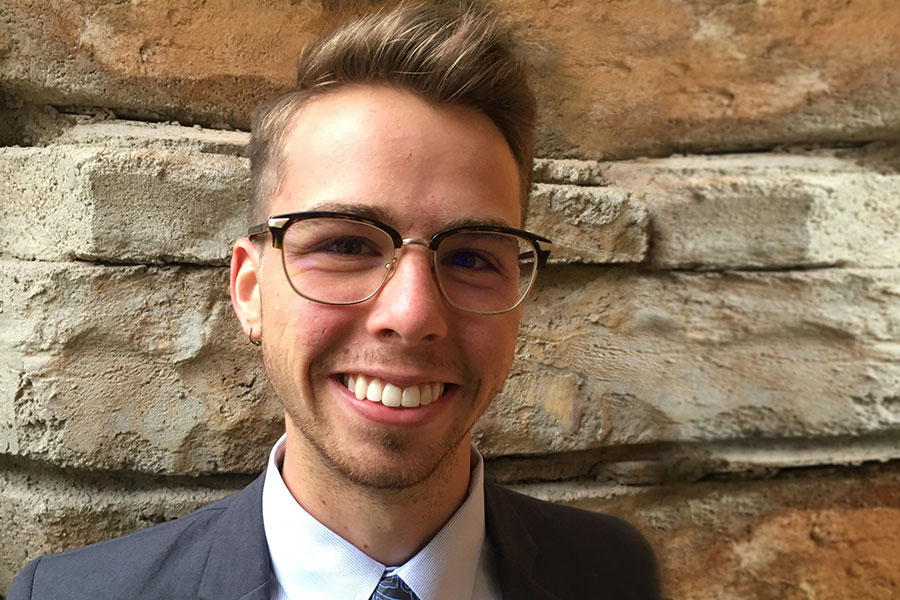
A Florida State University student who conducts research in theoretical physics has received a prestigious Goldwater Scholarship, awarded to the nation’s brightest mathematics, science and engineering college sophomores and juniors.
Shae Machlus, a rising senior from New Port Richey, will receive $7,500 from the Barry Goldwater Scholarship and Excellence in Education Foundation to cover the cost of tuition, fees, books and room and board. The goal of the Goldwater Foundation is to help ensure that the United States produces highly qualified professionals in these critical fields.
Machlus is an accomplished undergraduate researcher in physics, chemistry and scientific computing and recently completed his honors thesis, “Calculating Observables in the Three Body Coulomb Problem,” under the direction of FSU Professor of Physics Alexander Volya, who is a nuclear theorist.
“I am very proud of Shae’s achievements,” Volya said. “Shae has been extremely motivated and active in his work. He is punctual, organized and knowledgeable. These are the core skills that are required for success in a scientific career. Opportunities to work with students like Shae make FSU a wonderful place for scientific research.”
Machlus credits Yuko Hori, teaching faculty in the Department of Physics, for instilling a mentality of perseverance in him.
“Unless you’re a bona fide genius, you can’t avoid failing a lot,” said Machlus, a Presidential Scholar at FSU. “I encourage everyone to embrace failure as part of the learning process. If you didn’t fail at first then there would have been nothing to learn. Eventually you start to fail less.”
Over the summer, Machlus is working with University of Michigan physics researcher Xiaoming Mao, thanks to the National Science Foundation-funded Research Experiences for Undergraduates (REU) program. Their project will be a theoretical study of floppy modes in soft lattices, specifically disordered fractal lattices.
Last summer, Machlus worked with computational materials science researchers at the Max Planck Institute for Solid State Research in Stuttgart, Germany, and he participated in his first REU at Brigham Young University in 2017.
While researching theoretical crystallography at BYU, Machlus learned “that a career in physics cannot be fueled only by a love for physics.” To pursue a career in physics, he said, a researcher must enjoy the problem solving necessary to overcome the mathematical and technical hurdles that one encounters during the research process.
“Solving irksome problems such as this is not something that plagues research — it is something that characterizes research,” Machlus said. “This experience taught me I have an aptitude and an affinity for such work, and thus cemented my resolve to pursue a career in research.”
As he begins his senior year, Machlus carries a perfect 4.0 GPA and is set to graduate with honors in August 2020. He plans to pursue a doctoral degree in theoretical soft matter physics and a career as an academic.
Since its first award in 1989, the Barry Goldwater Scholarship and Excellence in Education Foundation has bestowed 8,628 scholarships worth approximately $60 million to undergraduate sophomores and juniors from the United States on the basis of academic merit. To learn more, visit https://goldwater.scholarsapply.org.
For more information on national scholarships, contact the Office of National Fellowships.




